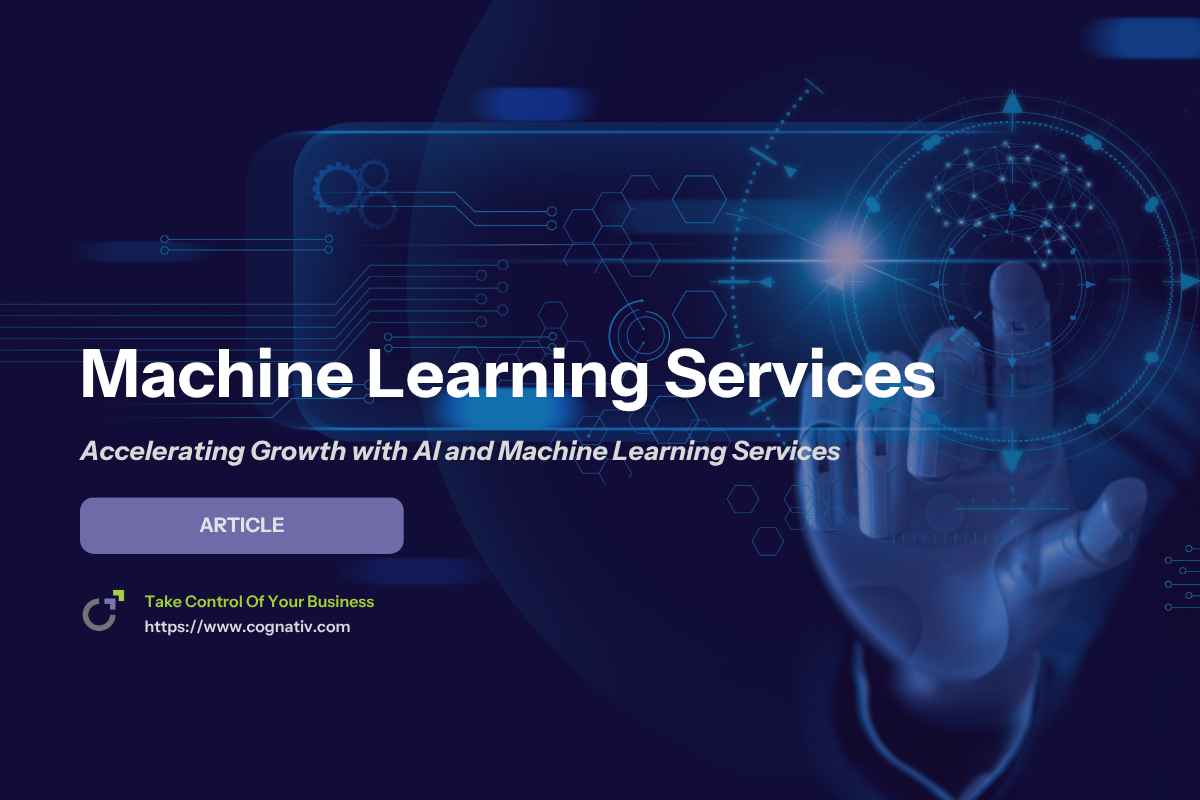Boosting Efficiency and Accelerating Growth with AI and Machine Learning Services
Artificial Intelligence (AI) and Machine Learning (ML) are no longer futuristic ideas—they are transformative forces reshaping how businesses operate, serve customers, and make decisions. From automating repetitive tasks to enabling predictive analytics, AI and machine learning services are crucial for achieving strategic growth, operational efficiency, and customer-centric innovation.
Artificial intelligence services and artificial intelligence solutions are at the forefront of driving measurable business impact, offering tailored strategies that solve specific business problems and improve operational workflows. AI innovation fuels industry-specific advancements by combining deep expertise with the latest AI technologies to deliver practical, results-oriented outcomes.
Key Takeaways
-
AI and machine learning help streamline operations, boost productivity, and cut costs.
-
Machine learning models generate insights that drive smarter decision-making.
-
AI infrastructure and services enable scalable, secure, and fast deployment.
-
AI and machine learning deliver accurate results by reducing human error and improving data analysis.
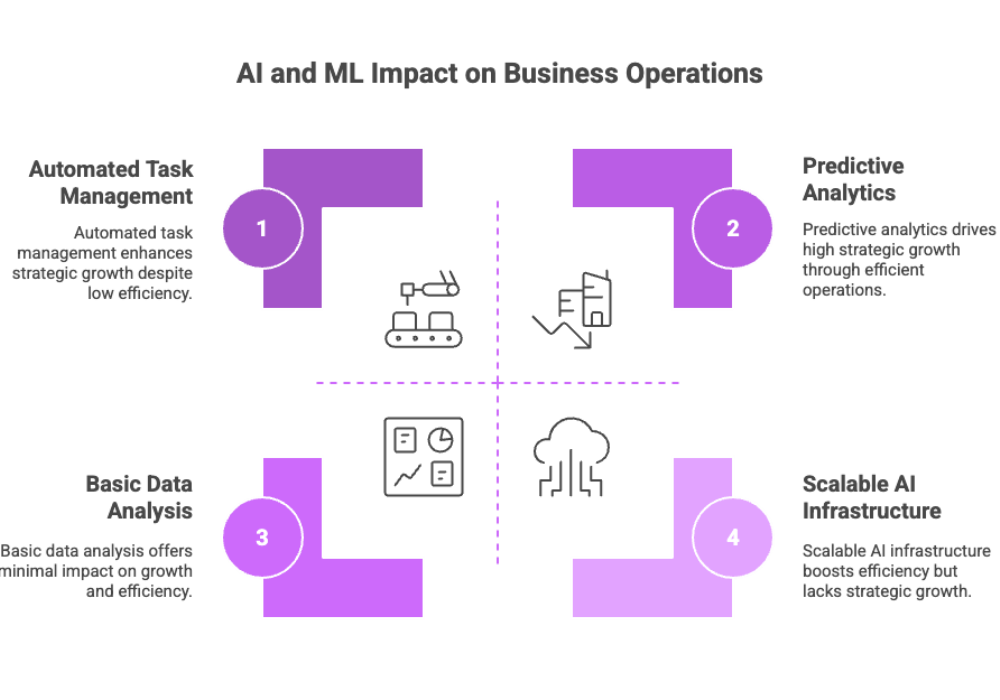

Introduction to AI and Machine Learning
AI and ML are revolutionizing industries across the globe. These technologies are enabling digital transformation by automating processes, extracting insights from data, and delivering intelligent solutions. AI/ML services encompass advisory, engineering, deployment, and ongoing support to drive comprehensive business transformation.
AI services empower organizations to harness machine intelligence for a wide range of business applications. By integrating machine learning models, companies can identify trends, optimize outcomes, and make data-driven decisions with minimal effort. AI and ML also play a crucial role in optimizing business processes across industries, improving workflows, decision-making, forecasting, and anomaly detection for greater efficiency and accuracy.
With the right AI infrastructure, businesses can quickly deploy scalable models tailored to their specific needs—whether it’s analyzing complex data or enhancing employee productivity. Data science is fundamental in extracting actionable insights and developing effective AI and ML solutions.
Involving the entire organization in AI initiatives is essential to maximize impact and ensure seamless adoption and scaling of solutions.
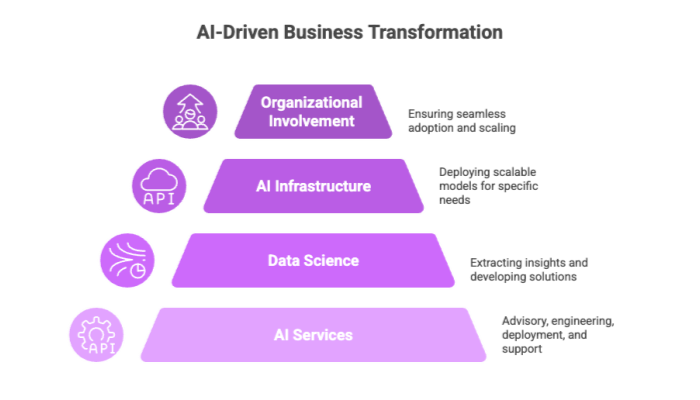

Business Benefits of AI and Machine Learning
Integrating AI and machine learning into daily operations yields measurable results:
-
Increase efficiency by automating time-consuming tasks and workflows.
-
Save time by automating repetitive and manual tasks, allowing teams to focus on higher-value activities.
-
Reduce costs by optimizing resource allocation and minimizing human error.
-
Improve customer experiences through AI-powered personalization and predictive services.
-
Use natural language processing (NLP) to extract valuable feedback from customer data, enhancing service delivery and satisfaction.
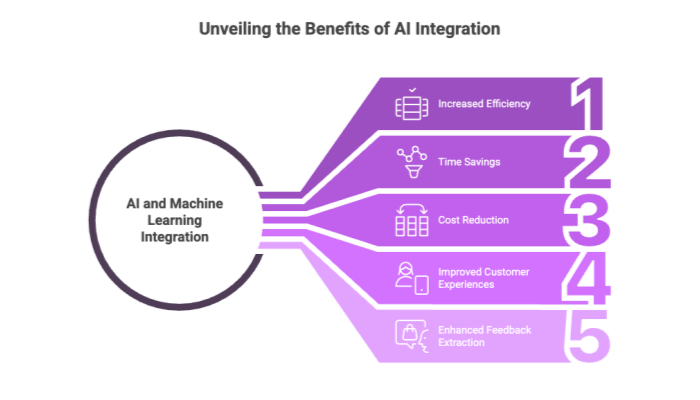

The Role of AI in Business
Artificial intelligence is rapidly becoming a cornerstone of modern business strategy, driving both innovation and operational excellence. By leveraging AI services and machine learning solutions, organizations can automate complex processes, extract meaningful insights from vast datasets, and make more informed decisions. The adoption of AI and machine learning enables businesses to streamline operations, increase productivity, and deliver superior customer experiences.
Technologies like generative AI and natural language processing empower companies to personalize interactions, anticipate customer needs, and achieve critical business objectives. As AI-powered solutions become more accessible, businesses of all sizes can harness their potential to stay ahead in a competitive landscape and unlock new avenues for growth.
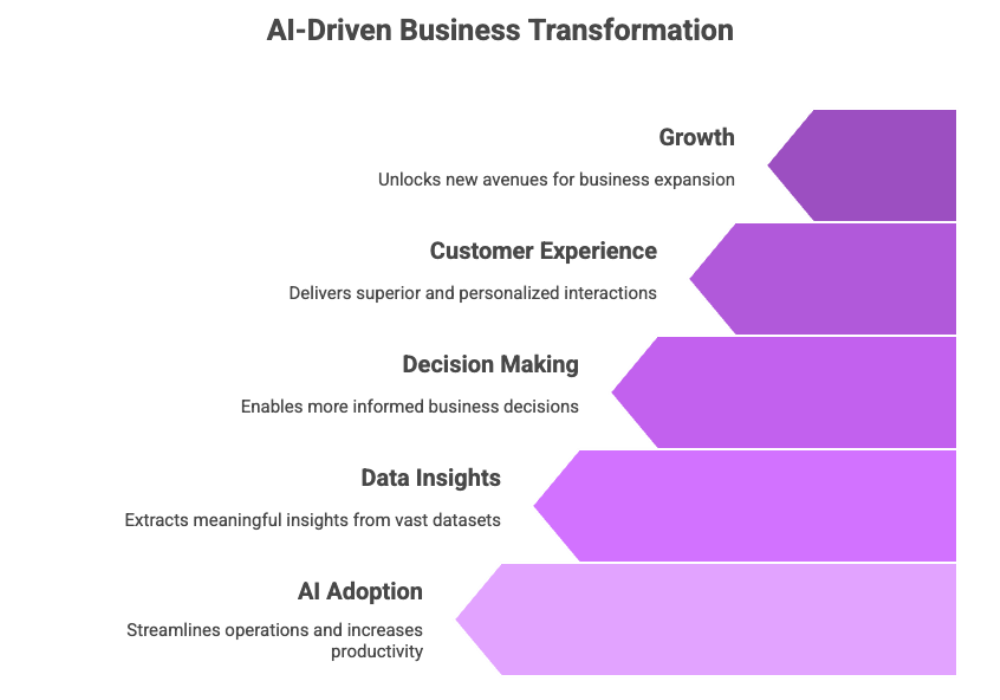

Understanding Business Needs
A successful AI and machine learning initiative begins with a deep understanding of a business’s unique needs and challenges. Data scientists and business analysts collaborate to evaluate existing systems, data management practices, and operational workflows. This assessment helps identify where machine learning models and AI services can deliver the greatest impact—whether through process automation, enhanced decision making, or improved customer engagement.
By aligning machine learning solutions with specific business goals, organizations can ensure that their AI investments are targeted and effective. This tailored approach not only maximizes the value of AI and machine learning but also ensures that solutions are scalable and adaptable as business needs evolve.
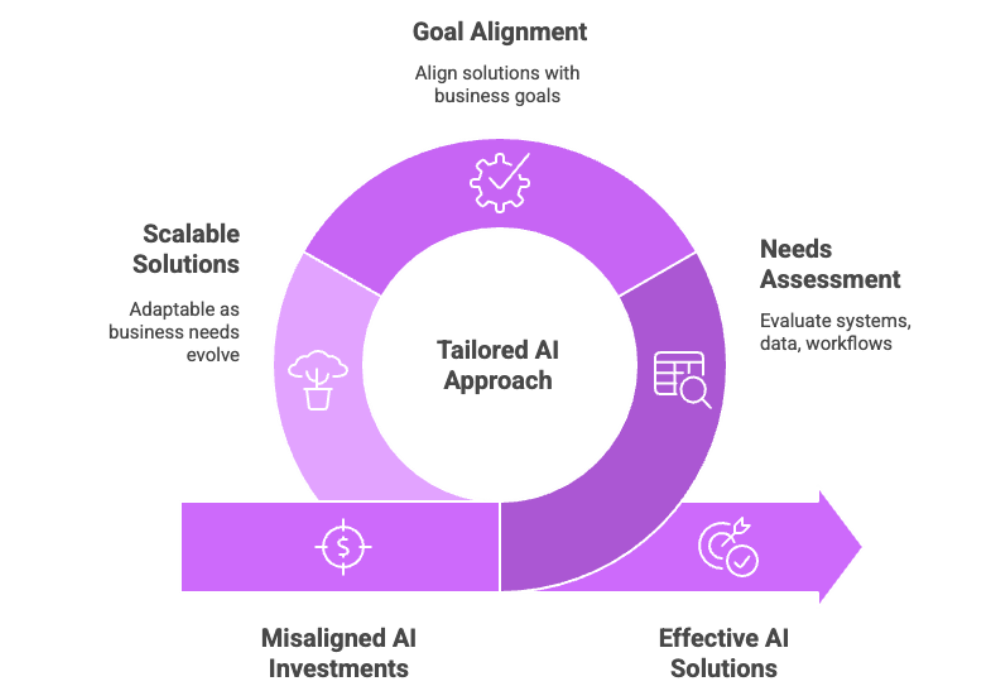

Building AI Infrastructure and Scalable Development
The foundation of successful AI deployment lies in robust AI infrastructure. Companies need cloud-based or hybrid environments that support:
-
Scalable AI model development.
-
Deployment tools for seamless integration with existing systems.
As part of a comprehensive suite for AI and ML implementation, organizations benefit from specialized development services and consulting services that guide them through every stage—from problem analysis to AI integration and ongoing operations.
Machine learning services facilitate rapid prototyping, training, and tuning of ML models, and help clients efficiently deploy ML models, accelerating development cycles and improving software quality across platforms—including web applications.
Our approach delivers tailored ML solutions designed to address specific business challenges and drive measurable results.
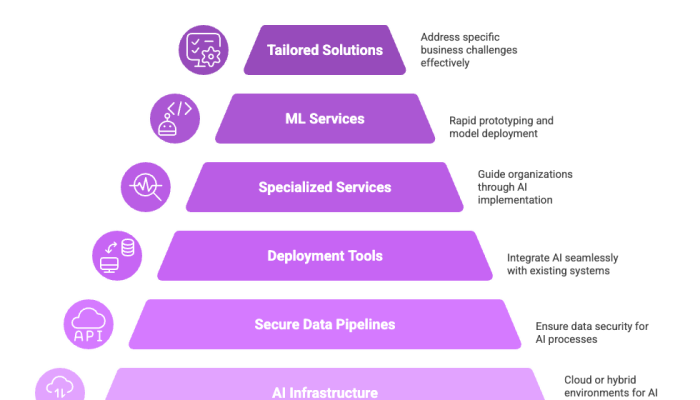

AI Strategy and Planning
Crafting a robust AI strategy is essential for businesses aiming to fully realize the benefits of artificial intelligence and machine learning.
This process starts with defining clear business objectives and evaluating the current AI infrastructure to identify opportunities for AI-driven solutions. Strategic planning involves mapping out a roadmap for digital transformation, ensuring that AI and machine learning initiatives are aligned with long-term business goals.
By taking a structured approach to AI adoption, companies can minimize risks, optimize resource allocation, and accelerate the deployment of impactful solutions. A well-defined AI strategy empowers organizations to harness the full potential of AI and machine learning, driving innovation and sustainable business growth.
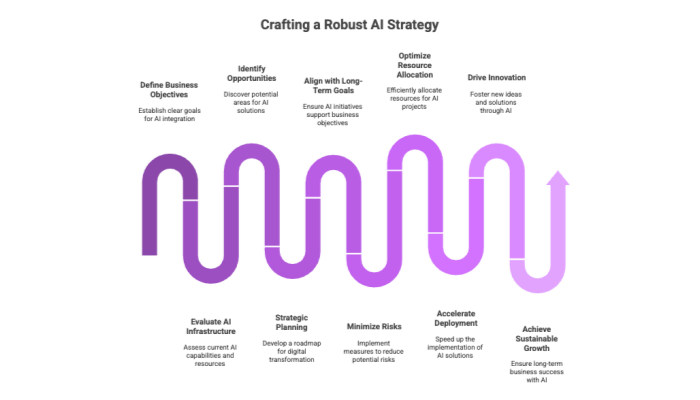

Targeted Machine Learning Solutions for Business Outcomes
Machine learning solutions provide versatile tools for driving better business outcomes:
-
Analyze customer data to uncover patterns in behavior, preferences, and churn. By examining user behavior, businesses can deliver more personalized customer experiences.
-
Predict trends with ML models to inform marketing, sales, and inventory planning.
-
Create intelligent interfaces like chatbots to handle routine interactions.
-
Integrate machine learning models into core operations for enhanced system performance.
By applying ML services to the right use cases, businesses can unlock new value with precision.
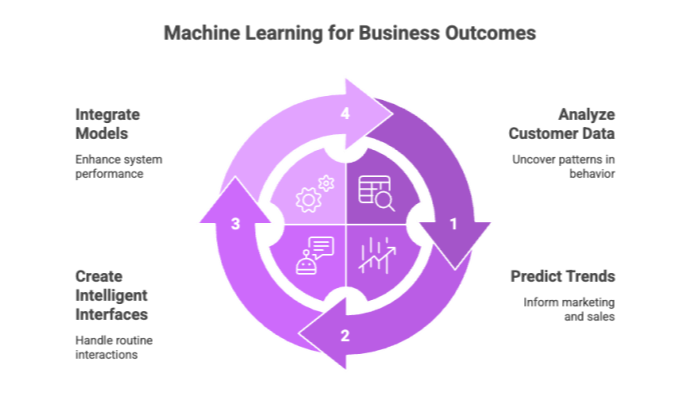

AI Machine Learning Applications
AI and machine learning are transforming industries with a wide range of practical applications. Machine learning models are at the heart of predictive analytics, natural language processing, and computer vision, enabling businesses to unlock new insights and automate decision-making. AI-powered solutions such as chatbots and virtual assistants enhance customer experiences by providing personalized, real-time support.
In addition, AI-driven solutions help organizations optimize operations, reduce costs, and boost employee productivity. The development of foundation models and robust AI infrastructure ensures that these applications are scalable, reliable, and capable of meeting evolving business demands, as outlined in enterprise software development solutions.
As businesses continue to innovate, the integration of AI and machine learning will remain central to delivering value and staying competitive.
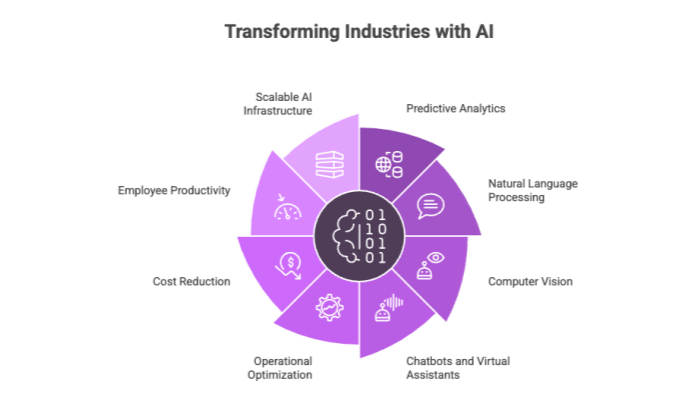

Natural Language Processing in Customer Engagement
Natural language processing plays a pivotal role in understanding and responding to customers. Through advanced AI and ML, NLP can:
-
Analyze customer interactions to identify satisfaction levels and pain points.
-
Power conversational interfaces that enhance self-service and reduce support load.
-
Generate insights from surveys, reviews, and social media for strategic decision-making.
AI-driven natural language capabilities provide the intelligence needed to build deeper customer relationships and elevate brand perception.
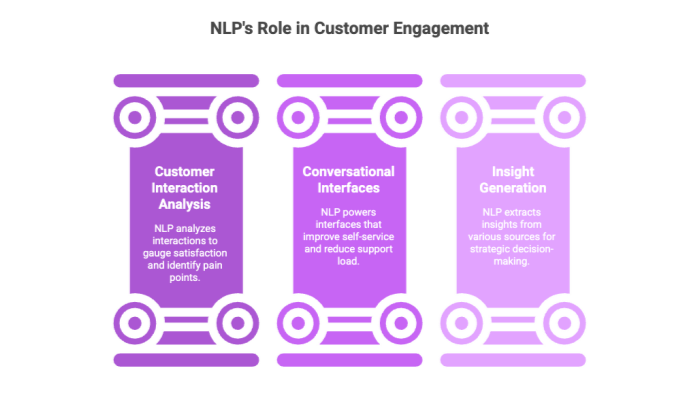

Enhancing Decision Making with AI
Data-backed decisions are no longer optional—they’re essential. AI-powered solutions give executives and teams the tools they need to act with confidence:
-
Machine learning models deliver real-time insights for informed decisions.
-
Predictive analytics identify risks and opportunities before they materialize.
-
Integrated NLP systems extract context from text to guide product, service, and support strategies.
With the power of AI, decision-making becomes faster, more accurate, and more aligned with business goals.
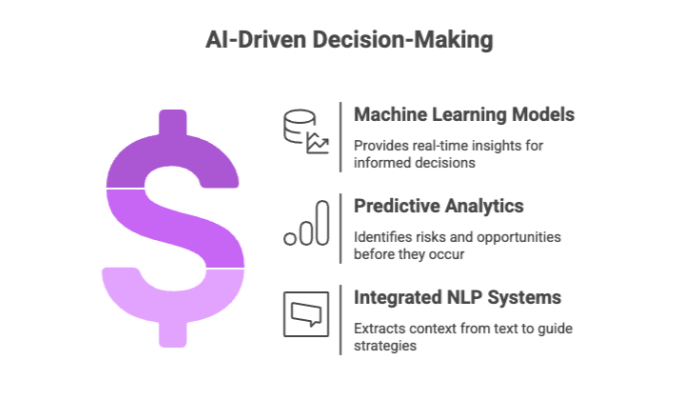

Responsible AI Practices
As artificial intelligence becomes more deeply embedded in business operations, adopting responsible AI practices is crucial. This means implementing strong governance frameworks, regularly monitoring AI models for bias, and ensuring transparency through explainable AI solutions. Responsible AI also involves understanding and mitigating potential risks, such as data privacy concerns and the impact on jobs.
By prioritizing ethical and accountable AI solutions, businesses can build trust with customers, employees, and stakeholders. Embracing responsible AI not only safeguards against unintended consequences but also supports long-term business sustainability and growth.
Ultimately, a commitment to responsible AI practices enables organizations to fully leverage the power of machine learning and artificial intelligence while maintaining integrity and public confidence.
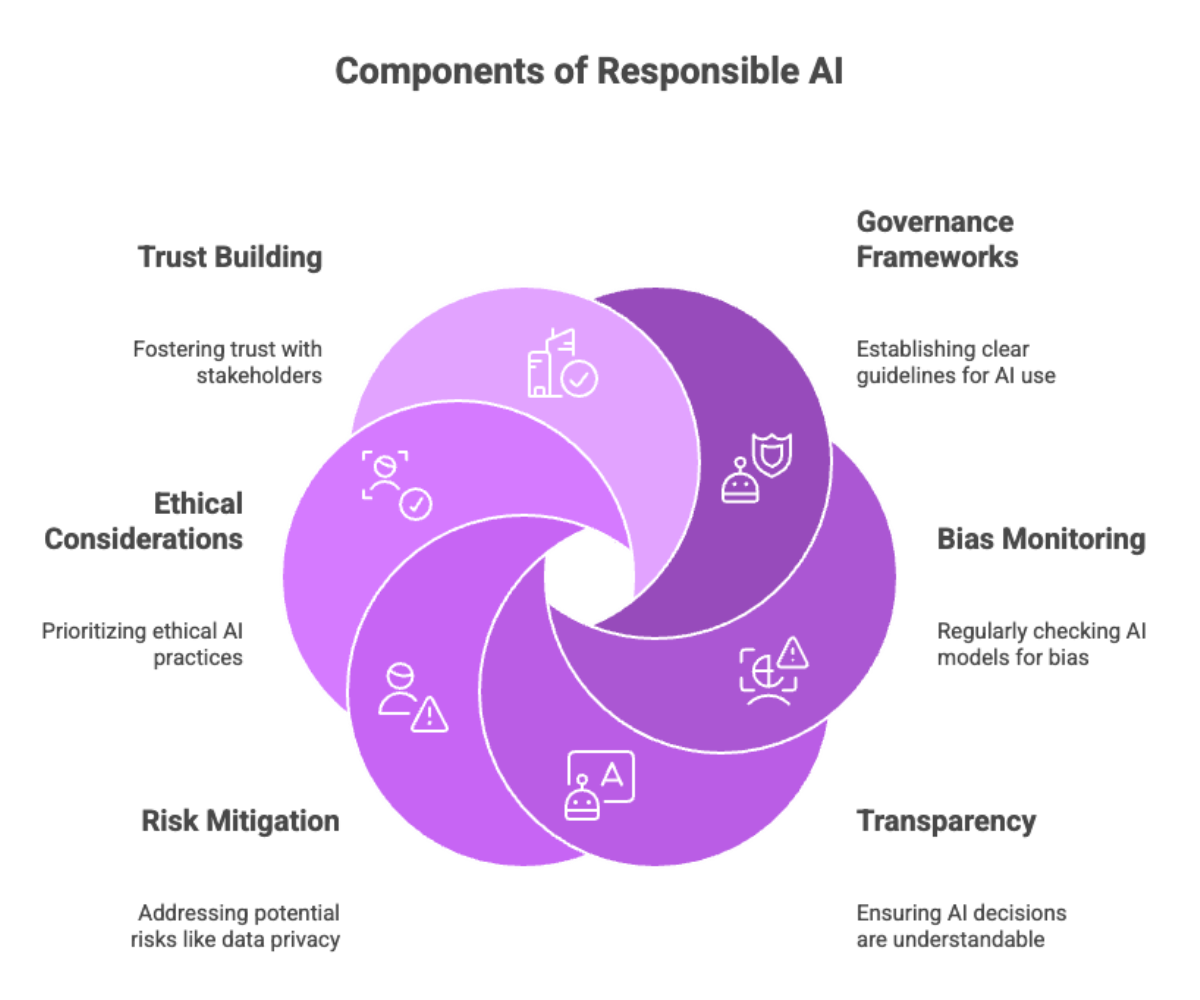

AI Maintenance and Long-Term Support
The AI journey doesn’t end at deployment—it requires continual improvement. Ongoing AI maintenance and support ensures:
-
Regular updates to ML models with new data and business priorities.
-
Continuous tuning and validation to uphold model accuracy.
-
Scalable support for growing applications, from web interfaces to enterprise systems.
Reliable machine learning services help businesses adapt to change, ensuring their AI capabilities evolve with the market.
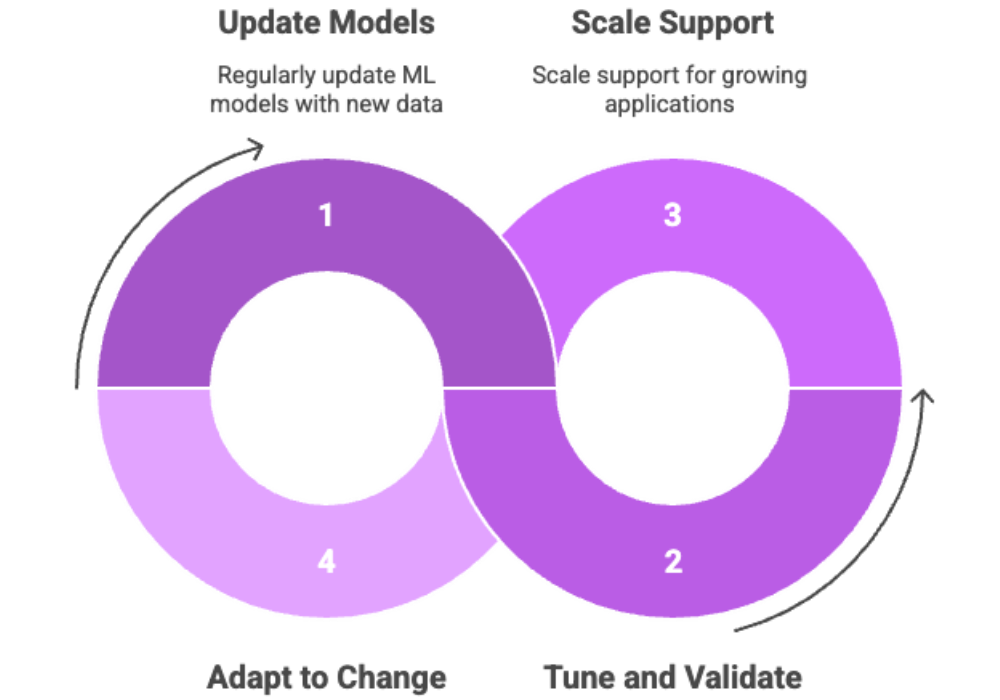

Conclusion: Embrace the Future with AI and Machine Learning
As AI and ML technologies continue to mature, organizations that integrate these solutions into their core strategies will lead the market in innovation, efficiency, and customer satisfaction.
From data analysis to process automation, the benefits of AI and machine learning services are clear—and the time to act is now.

